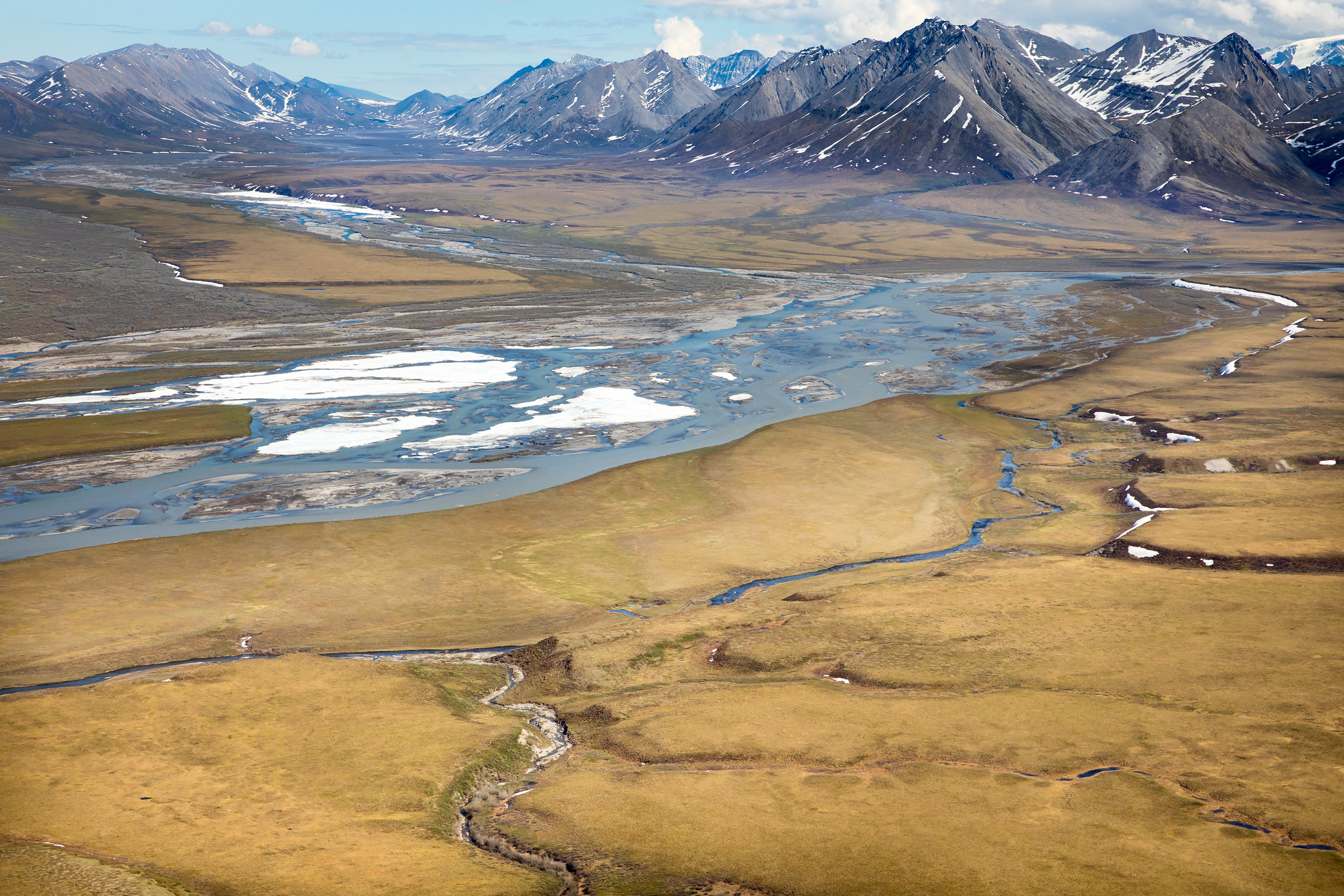A new lawsuit over Arctic refuge oil cites transboundary environmental effects
Several Lower 48 states have sued to halt exploration in ANWR, citing climate change and other environmental impacts that would affect them.

Washington state, Massachusetts, California and several other Lower 48 states may be thousands of miles to the south, but they will suffer negative environmental impacts from oil development in the Arctic National Wildlife Refuge, a new lawsuit argues.
The lawsuit, filed Sept. 9 in U.S. District Court in Anchorage by attorneys general for 15 states, seeks to overturn the Trump administration plan to allow oil leasing across the entirety of the refuge’s coastal plain. All attorneys general are Democrats.
The Lower 48 states have important reasons for opposing ANWR oil development, according to the complaint; “because nature does not recognize state borders, environmental harms often have cross-border impacts,” it says.
The Trump administration’s Aug. 17 decision to offer leases across the entire coastal plain relies on a flawed environmental impact statement from the U.S. Bureau of Land Management that fails to properly consider climate change and other serious impacts, the lawsuit alleges.
By exacerbating global climate change, refuge oil development would increase risks to the states of sea-level rise, extreme weather events, the spread of diseases like West Nile virus and other disruptions, the lawsuit says. “Moreover, accelerated climate change on the Coastal Plain directly impacts State Plaintiffs because atmospheric circulation patterns connect the climates of the Arctic and the contiguous United States,” it says.
Refuge oil development would also harm migratory birds that summer in the Arctic but spend other parts of the year in the Lower 48, creating direct and indirect economic benefits of $37 billion from recreation, wildlife-viewing and tourism. “Given the immense density (millions) and diversity (at least 156 species) of migratory birds on the Coastal Plain, the area’s ecological importance cannot be overstated,” the lawsuit says.

The lawsuit is led by Washington and Massachusetts. The other plaintiff states are California, Oregon, Michigan, Minnesota, Illinois, New York, New Jersey, Connecticut, Rhode Island, Maine, Vermont, Delaware and Maryland.
The lawsuit cites some state-specific and region-specific concerns. For example, in California, where most Alaska oil is refined, ANWR oil would increase the production of health-damaging pollutants like carbon monoxide, benzene, formaldehyde and arsenic, the lawsuit says. For coastal states, “ocean acidification through the ocean’s absorption of excess carbon dioxide in the atmosphere and warming water temperatures threaten natural resources and vital fisheries, including oysters, cod, lobster, and other marine life that play vital roles in the states’ economy and culture,” it says.
A statement from the Department of the Interior defended the administration’s leasing plan.
“This is a congressionally mandated energy development program that leaves 92 percent of the refuge completely off-limits to development. The lawsuit is politically motivated and meritless, and we will see them in court,” the statement said.
The 2017 federal tax overhaul legislation signed by President Trump included a provision requiring at least two lease sales in the refuge’s coastal plain. The first of those lease sales has not yet been scheduled.
The states’ lawsuit is the fourth filed so far that challenges the Trump administration plan for refuge oil leasing. All have been filed in U.S. District Court in Anchorage.
Also filed on Sept. 9 was a lawsuit by Gwich’in tribal governments in Venetie and Arctic Village, Alaska. The tribes are represented by the Native American Rights Fund. Gwich’in concerns focus largely on impacts to the Porcupine Caribou Herd, one of the largest in North America, but they include other environmental impacts.
Previous lawsuits were filed by two sets of plaintiffs that include the Gwich’in Steering Committee — an Alaska-Canada tribal organization — and several environmental organizations. the lawsuit says. One of those lawsuits cited transboundary impacts in Canada of ANWR oil development.
The 15 states in the new lawsuit and Canadian governments at various levels, from tribal to federal, last year submitted comments to the BLM that criticizing the agency for an alleged failure to analyze transboundary effects of ANWR oil development.